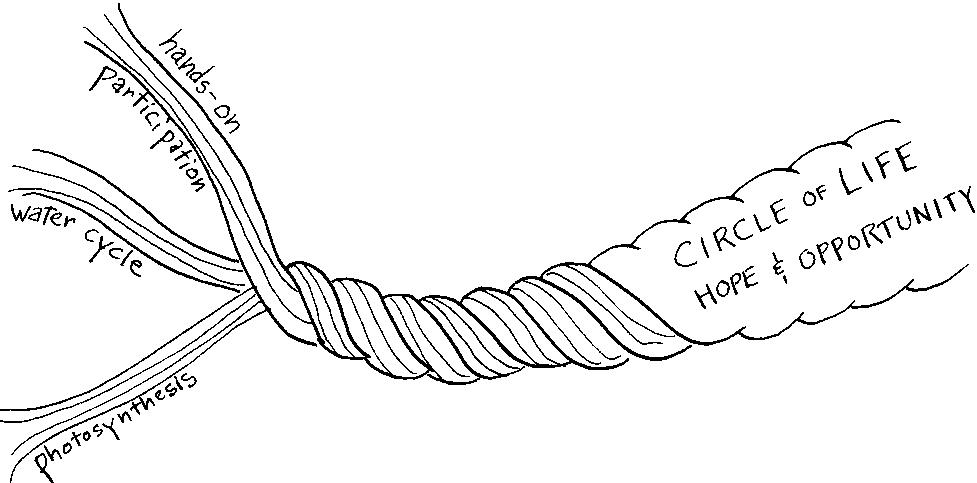Soil health is increasingly recognized as a key or hub for water cycling and carbon cycling on land, watershed function and water quality, atmospheric regulation, human health, and of the viability of civilization itself. The enormous flows of energy and matter in and out of soils remain camouflaged by our natural human focus on problems, on categories, species, and the constituents of soil. These problems organize and categorize our policy efforts, government and foundation funding, the disciplines of knowledge, and the boundaries between them.

If we can grasp soil health and watershed function, we have great potential to connect most of our serious problems and challenges into actionable opportunities. Yet we routinely turn this opportunity back into problems with our traditional modes of information delivery: lectures, dogma, expert information, and even advocacy of best practices.
Confucius said, Tell me, and I forget. Show me, and I remember. Let me do it, and I understand.
"When a problem can't be solved, enlarge it." (Attributed to Eisenhower.)
A one-day initial session introduces the complexity of soil health, watershed function, and supporting principles through simple hands-on and participatory demonstrations and experiments that participants can share with others. Because these are not merely technical issues, we also introduce some skills and practices of participatory learning: wider and more inclusive frames and contexts, listening to others learn, and acknowledging problems and barriers while clarifying opportunities to learn to work with the sunlight-powered circle of life, coupled carbon and water cycling, the most powerful planetary force. We adapt each session to the needs and skill levels of the participants, and can include:
- sharpening focus on the possible discrepancies between current reality and the results you would like to create
- reframing conflicts and power struggles over species and practices toward growing a shared intelligence on land function and sunlight energy
- recording geolocated, repeatable observations of soil health and watershed function on public and open-source maps and databases or apps (such as soilhealth.app for groups).
- finding and incorporating existing and legacy data that can illuminate trends in how water cycles and circle of life function.
A Land Listener workshop is well adapted to diverse audiences, such as conservation advocates and climate skeptics, vegetarians and ranchers, urban and rural, elementary students and soil science Ph.Ds. The desired result is growing capacity for collaborative community science, for example understanding how water cycling works. We do these for school classes (sometimes half day), teachers, conservation organizations and districts, ranch and farm groups. We aim to help grow communities of practice, help grow a shared local intelligence on landscape and community function via participatory learning, and to support these with open-source data platforms and facilitation.
Eastern US: Didi Pershouse at didi.pershouse@gmail.com; Cat Buxton at catduffybuxton@gmail.com
Western US: Peter Donovan at managingwholes.com@gmail.com
Land Listener workshops for grades 5-12
This 3- to 6-hour session engages teachers, students, and school communities with the core principles of soil health and watershed function. We do this with simple hands-on demonstrations that they can share and perform for others, with their own variations.
Participants can use these experiences to grasp solar-powered carbon and water cycling--the most powerful planetary force, for which soils are the hub or center of gravity. Participants of all ages can combine this understanding with what they have learned in science and environmental ed to form a more rounded concept of the circle of life, and of the hope and opportunity this offers for people to grow healthy soils which can reduce the risks of drought, fire, and flooding. Examples and follow-up learning activities can be downloaded through the first link on soilcarboncoalition.org/downloads.
